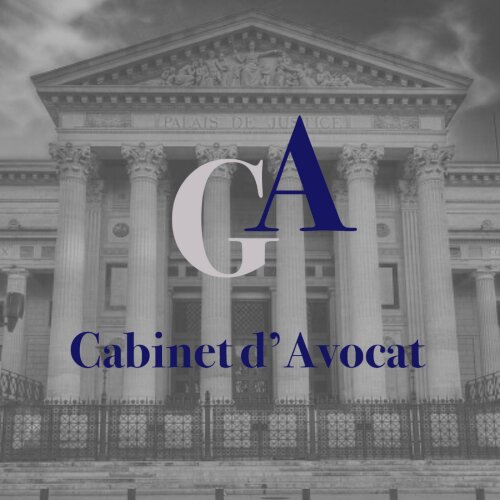Best Faith-Based Law Lawyers in Nîmes
Share your needs with us, get contacted by law firms.
Free. Takes 2 min.
List of the best lawyers in Nîmes, France
About Faith-Based Law in Nîmes, France
Faith-Based Law in Nîmes, France, involves the integration and recognition of religious principles and practices within the secular legal framework. Nîmes, with its diverse cultural tapestry, hosts various religious communities that may seek to address legal issues through the lens of their faith. While France upholds a stringent separation of church and state (Laïcité), certain legal accommodations and considerations are made for religious practices, provided they do not infringe on public order, safety, or the rights of others. Legal professionals specializing in Faith-Based Law often navigate complex intersections between religious doctrines and French civil law.
Why You May Need a Lawyer
Individuals may seek legal advice in Faith-Based Law for several reasons. Common situations include disputes over religious discrimination in workplaces or educational institutions, issues surrounding religious freedoms, marriage and family matters that involve religious customs, and negotiating contracts with religious institutions. Moreover, legal guidance may be required to ensure that religious practices comply with French laws, especially in areas such as property management for places of worship or religious dietary regulations.
Local Laws Overview
In Nîmes, as in the rest of France, the principle of Laïcité shapes the legal landscape. This principle ensures that religious activities are separate from state functions but allows personal freedoms for religious expression. Key aspects relevant to Faith-Based Law include: - The right to religious freedom, see tenets of The French Constitution and The European Convention on Human Rights. - Legal recognition of religious organizations, subject to compliance with public order and safety regulations. - Legal procedures for religious marriages, which must also comply with civil marriage laws. - Education laws ensuring religious neutrality in public schools, while allowing private religious schools to exist with adherence to national standards.
Frequently Asked Questions
What is Faith-Based Law?
Faith-Based Law refers to legal matters that involve religious beliefs and practices. It often requires balancing civil requirements with the spiritual and doctrinal tenets of one's faith.
Does France recognize religious laws?
While religious laws themselves are not recognized as legal binding laws in France, individuals may practice their religion freely as long as it complies with French civil law.
Can religious marriages be legally recognized in Nîmes?
All marriages must first be conducted civilly under French law to be legally recognized. Religious ceremonies may follow but do not replace civil marriages.
How are religious discrimination cases handled?
Religious discrimination cases are addressed under French labor and civil rights laws. Victims can seek restitution and protection through tribunals or mediations.
Can faith-based schooling be prosecuted?
Private religious schools are allowed, provided they meet national educational standards and curriculum requirements set by the French government.
Are there protections for wearing religious attire in public?
France enforces laws on secularism in public spaces, notably with bans on religious symbols in public schools and certain public sector roles, but individuals generally retain the freedom to express their religion through attire in other public settings.
What is Laïcité?
Laïcité is the French concept of secularism, emphasizing the separation of religion from government, ensuring religion does not interfere with state affairs and vice versa.
Can religious dietary laws be legally enforced?
While individuals can practice religious dietary customs, no legal enforcement ensures compliance by third parties. However, businesses may choose to accommodate these practices voluntarily.
How are faith-based end-of-life decisions respected in Nîmes?
Advance directives detailing an individual's wishes consistent with both their faith and French law are respected where possible, particularly in medical contexts.
Where do I report a violation of religious freedom?
Violations can be reported to local police or the Défenseur des droits (Defender of Rights), who can investigate and mediate such complaints.
Additional Resources
For further guidance, individuals may contact the Défenseur des droits, which handles complaints about human rights and discrimination, including religious discrimination. The Ministry of Interior provides insights into recognized religious associations. Legal aid societies provide resources and referrals to qualified attorneys who specialize in Faith-Based Law.
Next Steps
If you require legal assistance in Faith-Based Law, start by identifying your specific legal needs and gathering related documentation. Consult with a lawyer specializing in this field to discuss your situation and explore your legal options. You can request referrals through legal aid organizations or directly contact law firms in Nîmes that have experience with Faith-Based Law to ensure your rights and interests are adequately represented.
Lawzana helps you find the best lawyers and law firms in Nîmes through a curated and pre-screened list of qualified legal professionals. Our platform offers rankings and detailed profiles of attorneys and law firms, allowing you to compare based on practice areas, including Faith-Based Law, experience, and client feedback.
Each profile includes a description of the firm's areas of practice, client reviews, team members and partners, year of establishment, spoken languages, office locations, contact information, social media presence, and any published articles or resources. Most firms on our platform speak English and are experienced in both local and international legal matters.
Get a quote from top-rated law firms in Nîmes, France — quickly, securely, and without unnecessary hassle.
Disclaimer:
The information provided on this page is for general informational purposes only and does not constitute legal advice. While we strive to ensure the accuracy and relevance of the content, legal information may change over time, and interpretations of the law can vary. You should always consult with a qualified legal professional for advice specific to your situation.
We disclaim all liability for actions taken or not taken based on the content of this page. If you believe any information is incorrect or outdated, please contact us, and we will review and update it where appropriate.









